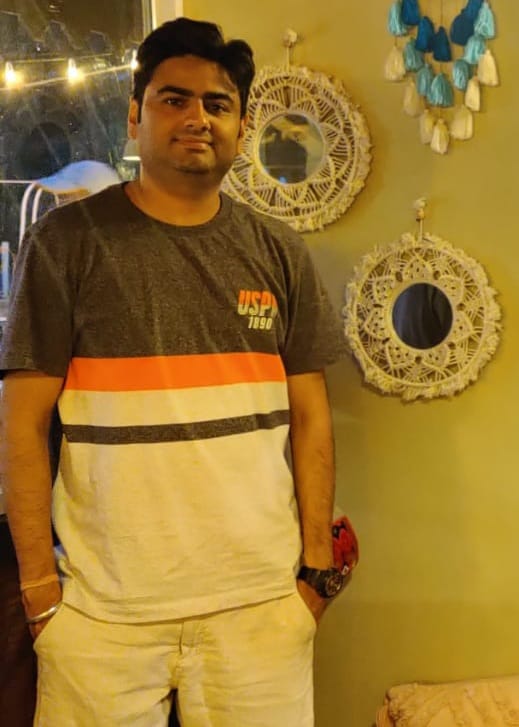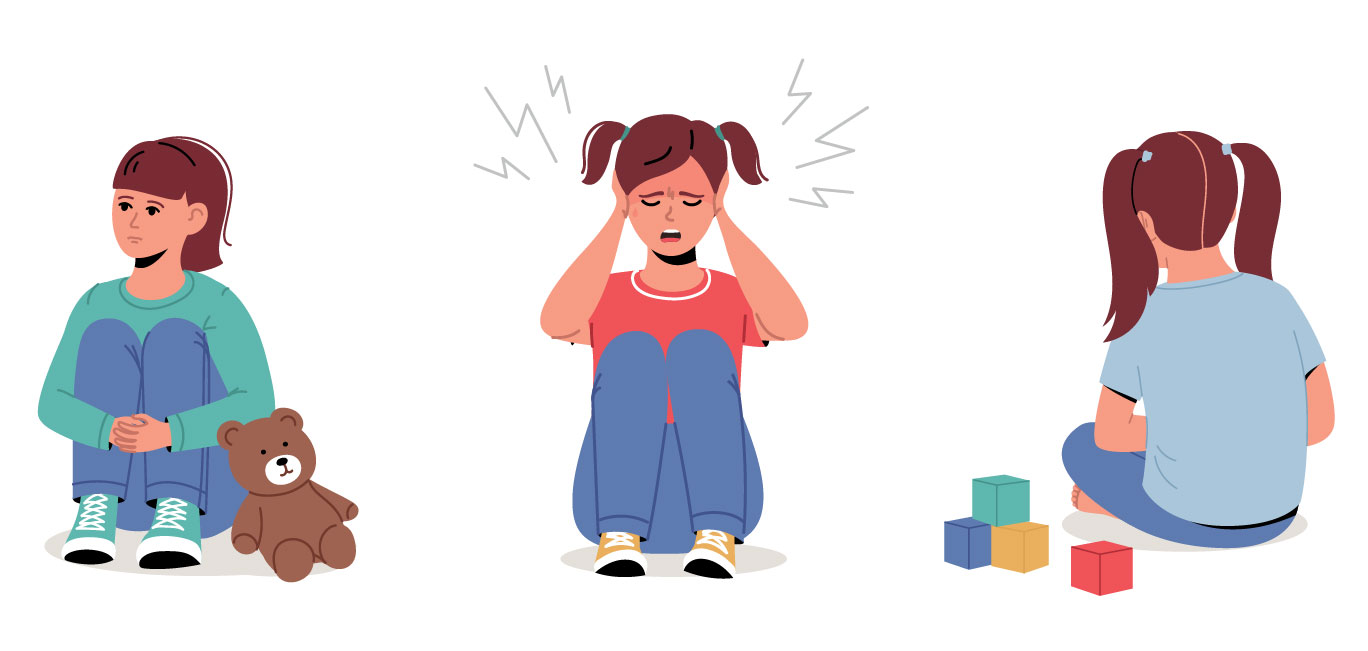“She is an autistic child and supposedly non-verbal, but when she’s at home, she talks to me clearly and fluently,” the mother of a 12-year-old girl studying at Bluebells school in Kailash Colony, Delhi said, in conversation with Anita Prasad, a special educator who was working there at the time.
“This was many years ago but it’s one case that I can never forget in my life,” says Prasad, who is now head of department, special needs, Step by Step School, Noida, Uttar Pradesh.
READ MORE
Tips for new parents to catch up on their sleep
Parenting styles: from authoritarian to free-range

In order to find out if this was indeed true, Prasad accompanied the little girl even after she changed her school to the Shaurya Centre in Maharani Bagh and spent some time observing her. At first, the child was quiet but as soon as they got into the car to go home, the girl did indeed start talking non-stop. “It was like a miracle and turned my notions upside down too, because we had assumed that she is non-verbal, never hearing her say a word in the entire time that she was at my school!” remembers Prasad who feels that kids with special needs cannot be defined in specific language or put into one bracket, as all of them are so unique and different.
“As for this girl, she is a high functioning autistic kid who went on to study in the NIOS (National Institute of Open Schooling) and is in college now. Looking back, I feel her silence was mostly because she didn’t want to speak. Many children ‘mute’ themselves because they know that they are different and lack the confidence to open up in public for fear of ridicule and judgement. But that’s only in some cases,” adds Prasad.
Knowing that your child has special needs can be a very painful discovery, as the parents interviewed in the previous parts of this series, have told us. After all, nobody is prepared to deal with something like this and it is a gradual process of learning how to manage a child that has one or multiple disabilities that all fall under the umbrella of special needs. Dr Eamon Dutta, director of clinical services at Peachford Behavioural Health, Atlanta, Georgia, who is also a parent to 11-year-old Keegan, who is autistic and completely non-verbal says, “Nobody is prepared for something like this and with the birth of our child and the resulting special needs, it completely turned our lives upside down. Also, unless you are a parent, one cannot understand what it’s like to raise a child with such needs.”
Kinds, degrees of special needs
Special needs can mean so many things, with so many varied needs, but in a nutshell, it just means children who require assistance to be able to do the things that an average kid does effortlessly. There can be various kinds of special needs and various degrees of it, as experts tell us and sometimes it can be helpful to know quite early in your child’s life, how to manage the situation with some advice, some logic, some common sense and a whole lot of courage because raising a special needs kid also makes you a ‘special’ parent, one that never gives up in the face of all odds.
They are ‘special’ or ‘different’ because some children have congenital disorders (at birth) like an intellectual disability where they experience developmental delays or genetic conditions like Down syndrome or a physical disability like cerebral palsy or the Fragile X syndrome, an inherited condition that causes intellectual disability and learning and behavioural problems. Some children can develop certain conditions post birth too, like hearing problems, brain and heart conditions, blood, metabolism, and hormone disorders, amongst others. And the four main types of special needs are physical, developmental, behavioural/emotional and sensory-impaired.
Prasad who has been working for the last 30 years with notable stints at the Spastics Society and Suniye, an NGO for the hearing impaired, among others, says that studying about special needs helps parents understand their children better.
“Some children have the ability to study or read or are blessed with talent in a certain field; but if somebody is not, then that child should be taught things and kept happy and calm and allowed to have a stable, balanced life with therapies in early childhood. As they grow older, these therapies should be built into their daily lives. Thirdly, parents and teachers should never compare them to any other special needs kid or even their siblings. They are unique, they come with challenges, and we are here to help them help their child. It’s a collaborative effort between parents and kids and requires a lot of hard work and extra dedication, from both sets,” she says.

“Patience is key, I would say,” says Jitendra Thakur, special educator at Step by Step School, Noida, about the best way to teach kids with special needs.
He says while it is not difficult to teach these kids, it is challenging as they exhibit repetitive behaviour, rigidity to change, restricted interest and a lack of socialisation. He also emphasises that for teachers, creating happy and trustful classrooms where children have the freedom to share and express, respect each other and be kind is important. Also important is an early assessment and diagnosis so that the child can lead a fulfilling life, he adds.
A lot of parents are usually in denial when they first start noticing that their child is different from the others and may not be meeting all the milestones of development or are facing other difficulties.
Special needs: early stages
Says Satinder Kaur Walia, child psychologist with Medanta Hospitals, who also runs her own clinic in Gurgaon and works in early diagnosis, assessments of the disabilities, and intervention planning, “I believe if children are picked at early stages of showing delays, then we can mitigate their disabilities. Parents should monitor child milestones. Any delays in early development should be noted and help should be sought. Children who don’t have delays and start schooling and struggle with initial years by showing challenges in reading and writing should be screened for learning disabilities. Children at adolescent stages should be monitored for anxiety and depression symptoms. Any red flags at any age should not be ignored and help should be sought.”

Walia feels that most parents and schools highlight and focus on highlighting weaknesses. Instead, there should be more trainings for parents and teachers to accept exceptionalities and benchmarks should be individualized and growth of each child should be monitored.
“Children with special needs can learn a lot from children without disabilities. Sensitization of schools and children should happen often by continuing workshops and seminars,” she adds.
How important is therapy in the development of a special needs child and for how long will he/she benefit from it, seems to be an important question in the mind of most parents. Therapies can vary from speech (verbal) to occupational (to help in motor and muscle skills) to ADL (activities of daily living) and behavioural issues that need the intervention of a psychologist or a psychiatrist and even medication.
Special needs and therapies
Says Parul Gupta, who heads Potentials, one of Delhi’s oldest therapy centres where children of all age groups come for various therapies and social skills development, “All kids benefit from skills development and essentially receive this in schools and co-curricular classes. A child with developmental differences also needs to gain skills that have gone amiss. The person imparting this needs to be well conversant with nuances of development and managing challenges that come with this.”

She says therapy later changes to skill development as children grow up. Social skills are the one that need to be worked through all the time, though, she adds.
“For children diagnosed with social communication difficulties (part of many disorders), picking up the unsaid social rules, picking up social clues and thinking socially is hard. A social communication therapist works in helping develop this,” says Gupta.
Usually disabilities that come with birth (chromosomal or gene defect) involve a different mode of treatment and other issues that crop up post birth are largely metabolic disorders that require the intervention of a paediatric neurologist. Neurological issues can lead to developmental disabilities and missed milestones and other problems that impair speech, hearing, mobility, writing, reading, playing and social skills.
The sequence followed is such: parent notices a few irregularities in growth and behaviour and unusual reactions or movements of child; advised by regular paediatrician to consult a paediatric neurologist and then carry out tests and later for other issues visit a child psychologist or psychiatrist and the diagnosis is given. And then begins a lifetime of therapies, medicines, battling conditions that they never knew existed.
Special needs: warning signs

Dr Vinit Bhushan Gupta, paediatric neurologist at Apollo Hospitals, Sarita Vihar, Delhi says parents of young babies should be alert as most conditions are ignored initially because most people are not aware of the warning signs to look out for, in case of babies that later go on to exhibit medical issues. Such kids seem to have a variety of neurological issues and the most common are seizures, headaches, migraines, spasticity, muscle problems, brain swelling and of course developmental issues.
“Parents sometimes get confused when little children say they are not feeling well, and the head is aching or whatever because they feel that perhaps the child is being naughty and doesn’t want to go to school. But whatever it may be, one should not ignore anything that doesn’t feel right.”
Dr Gupta says the initial signs in small babies to watch out for, from the period of six months to one year are:
- Child blinks frequently and looks at lights from one corner of the eye
- Child has jerks
- Child cannot stand loud noises
These symptoms and should be checked with a paediatric neurologist immediately who can then recommend tests like MRI of the brain, an EEG, neuro metabolic tests if required. He also says that initially they recommend that the parent make a video of the child and bring it with him, for clarity of the issue. He says while most conditions do require long-term medication, sometimes they can be weaned off, if the child improves, unless it is a sleep issue, twitching, drooling or behavioural issues.

















